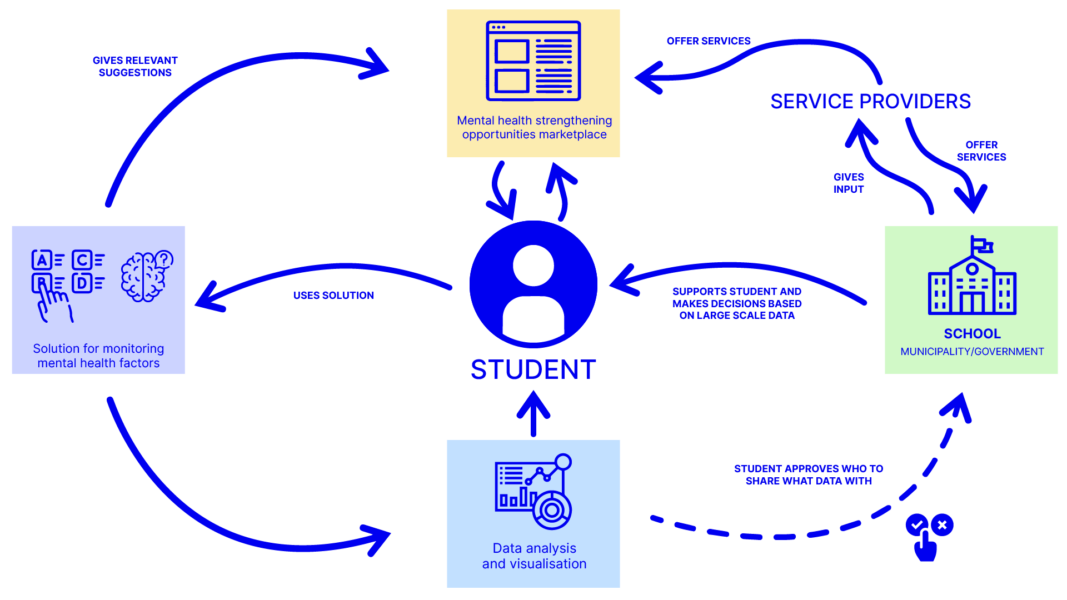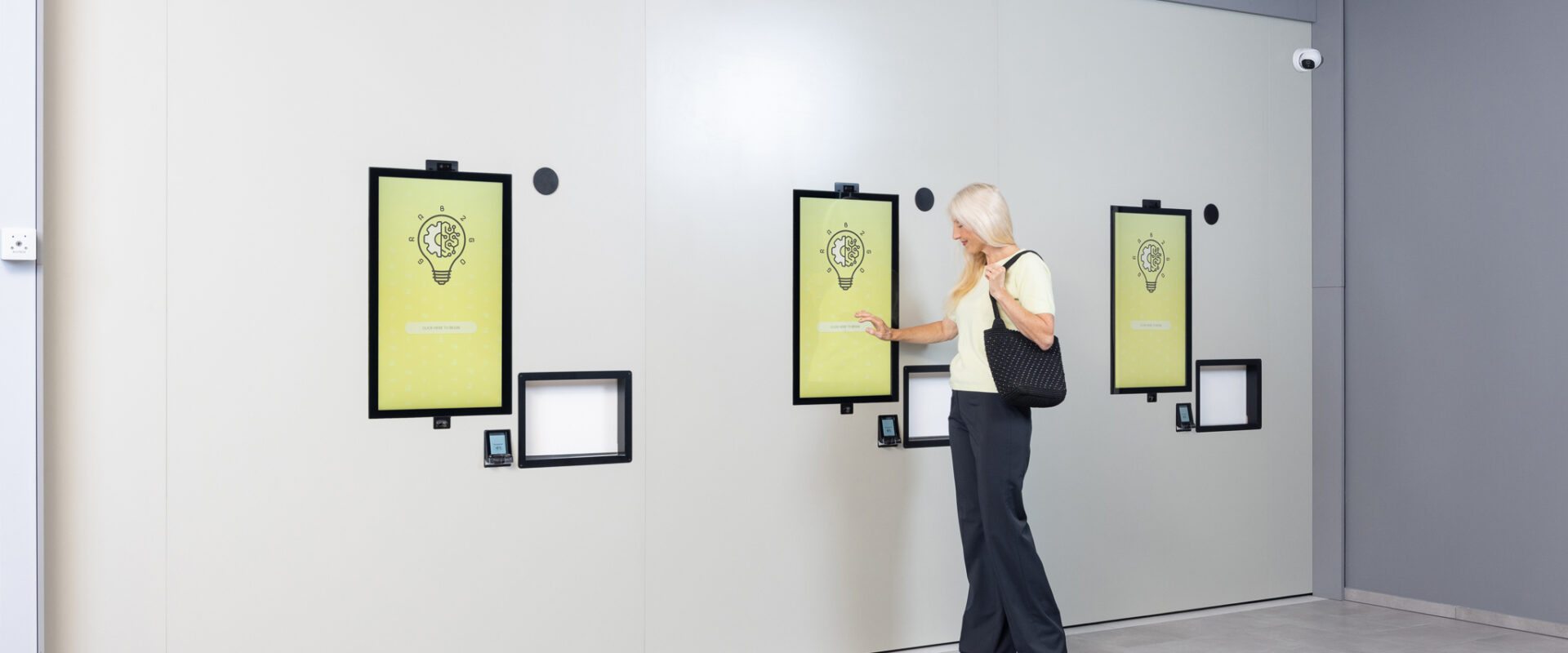Mental health issues often begin in childhood or adolescence, and their effects can be long-lasting if not addressed early. In Estonia, one in three students aged 11 to 15 have experienced depressive episodes during the school year. These unresolved mental health problems can negatively impact a child’s development, learning outcomes, and overall well-being, with potential long-term societal costs.
Clanbeat
Mental health monitoring and prevention for students
At the time of carrying out this project, Accelerate had a wider goal of supporting public/private partnerships, which later evolved to a more narrow focus on unlocking new markets by overcoming regulatory barriers.

Introduction
Problem
Schools play a crucial role in helping young people develop self-help and self-support skills, which form the foundation of mental health. Unfortunately, the Estonian education system currently lacks sufficient qualified psychologists and support specialists, hindering the provision of necessary support to students. Systematic improvements must begin with promotion and prevention activities.
From the state’s perspective, the absence of essential mental health support leads to increased healthcare costs.
However, young people lack the tools for systematic mapping of their mental well-being and for receiving relevant and timely feedback. There is also no up-to-date and operational data-driven overview of what is happening with young people’s mental health within the surrounding support system. This concern involves schools, local municipalities, the government, and mental health service providers supporting young people.
Solution
To address this gap, Clanbeat, in partnership with Accelerate Estonia, proposed a comprehensive mental health monitoring and prevention concept for students. This project includes a real-time self-assessment and data analysis solution that maps students’ mental health status, enabling data-driven decision-making at both school and municipal levels. The platform would serve as a central hub for key stakeholders—including schools, municipalities, NGOs, and government bodies—providing an integrated view of students’ mental health.
The model also has high potential as a low-cost measurement tool to identify whether new interventions have had an impact on the well-being of the young people or school staff it was offered to.
End Goal
The ultimate goal is to support the systematic and data-driven promotion of youth mental health at all levels—students, schools, local governments, and the state. By preventing major mental health issues early on, the initiative aims to reduce the long-term social and economic costs associated with mental health disorders, contributing to the broader goals outlined in Estonia’s development strategies, including the Estonia 2035 plan.
Outcome
The pilot involved developing a self-assessment and data analysis solution, as well as a marketplace concept for mental health services targeted at students.

As a result of the project, a periodic mental health monitoring system was developed and piloted across over 10% of Estonian schools, involving more than 4,300 students and more than 800 school staff members.
The system proved valuable to many schools, local governments, and the Ministry of Education and Research. Although the primary challenge lies in securing a sustainable funding model, several schools and municipalities have found solutions to continue using the service even after the pilot project ended.
In 2023, Clanbeat started to offer the solution to schools and local governments as a paid service.
In 2024, Clanbeat started mapping the mental well-being of school communities in the Zhytomyr region in Ukraine to assess the war’s impact on students and staff, connecting them with appropriate mental health support services.


